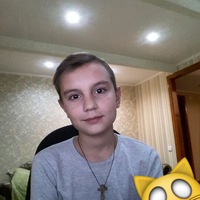
V.Find the Passive Voice and underline it1.Poems were not translated at home 2.English is spoken
all over the world 3.The game will played tomorrow morning. 0
0
 0
0
Ответы на вопрос
 Внимание! Ответы на вопросы дают живые люди. Они могут содержать ошибочную информацию, заблуждения, а также ответы могут быть сгенерированы нейросетями. Будьте внимательны. Если вы уверены, что ответ неверный, нажмите кнопку "Пожаловаться" под ответом.
Внимание! Ответы на вопросы дают живые люди. Они могут содержать ошибочную информацию, заблуждения, а также ответы могут быть сгенерированы нейросетями. Будьте внимательны. Если вы уверены, что ответ неверный, нажмите кнопку "Пожаловаться" под ответом.

2) English is spoken all over the world.
3) The game will (be) played tomorrow morning. Если Вы be пропустили, тогда Passive.
 0
0
 0
0

Passive Voice Examples
1. Poems were not translated at home. 2. English is spoken all over the world. 3. The game will be played tomorrow morning.
In the given examples, the passive voice is used to emphasize the action being done to the subject of the sentence, rather than the subject performing the action. Let's break down each example:
1. Poems were not translated at home. In this sentence, the verb "translated" is in the passive voice. The subject "poems" is receiving the action of being translated, rather than performing the action themselves. The passive voice is formed by using the auxiliary verb "were" followed by the past participle "translated" of the main verb "translate" [[1]](https://fsc.bsu.by/wp-content/uploads/2015/12/Prakticheskaya-grammatika-1-kurs-English-Grammar-Practice-uchebno-metodicheskoe-posobie.pdf).
2. English is spoken all over the world. Here, the verb "spoken" is in the passive voice. The subject "English" is the receiver of the action of being spoken, rather than actively speaking. The passive voice is formed by using the auxiliary verb "is" followed by the past participle "spoken" of the main verb "speak" [[5]](http://e-lib.mslu.by/bitstream/edoc/8801/1/%D0%9F%D1%80%D0%B0%D0%BA%D1%82%D0%B8%D1%87%D0%B5%D1%81%D0%BA%D0%B0%D1%8F%20%D0%B3%D1%80%D0%B0%D0%BC%D0%BC%D0%B0%D1%82%D0%B8%D0%BA%D0%B0%20%20%D0%90%D0%BD%D0%BE%D1%88%D0%B8%D0%BD%D0%B0%20%D0%A7%D1%83%D1%87%D0%BA%D0%B5%D0%B2%D0%B8%D1%87.pdf).
3. The game will be played tomorrow morning. In this sentence, the verb "played" is in the passive voice. The subject "the game" is the receiver of the action of being played, rather than actively playing. The passive voice is formed by using the auxiliary verb "will be" followed by the past participle "played" of the main verb "play" [[5]](http://e-lib.mslu.by/bitstream/edoc/8801/1/%D0%9F%D1%80%D0%B0%D0%BA%D1%82%D0%B8%D1%87%D0%B5%D1%81%D0%BA%D0%B0%D1%8F%20%D0%B3%D1%80%D0%B0%D0%BC%D0%BC%D0%B0%D1%82%D0%B8%D0%BA%D0%B0%20%20%D0%90%D0%BD%D0%BE%D1%88%D0%B8%D0%BD%D0%B0%20%D0%A7%D1%83%D1%87%D0%BA%D0%B5%D0%B2%D0%B8%D1%87.pdf).
The passive voice is commonly used when the focus is on the action or when the subject is unknown or unimportant. It is also used to sound more formal or to avoid mentioning the doer of the action.
 0
0
 0
0
Топ вопросов за вчера в категории Английский язык
Последние заданные вопросы в категории Английский язык
-
Математика
-
Литература
-
Алгебра
-
Русский язык
-
Геометрия
-
Английский язык
-
Химия
-
Физика
-
Биология
-
Другие предметы
-
История
-
Обществознание
-
Окружающий мир
-
География
-
Українська мова
-
Информатика
-
Українська література
-
Қазақ тiлi
-
Экономика
-
Музыка
-
Право
-
Беларуская мова
-
Французский язык
-
Немецкий язык
-
МХК
-
ОБЖ
-
Психология
-
Физкультура и спорт
-
Астрономия
-
Кыргыз тили
-
Оʻzbek tili



















